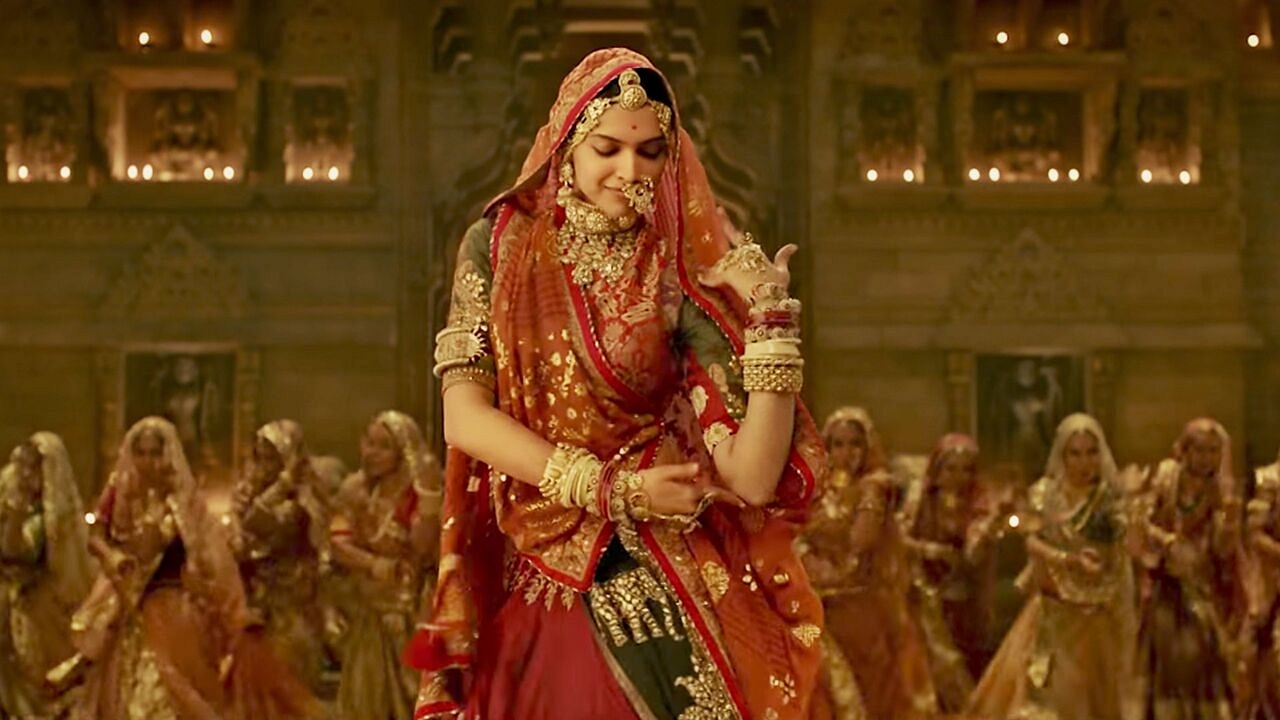Ideas
Post Padmaavat, SC Must Live Up To Its Free Speech Rhetoric And End Ban On ‘Satanic Verses’
- The top court now needs to live up to its tall rhetoric. At the very least, the time has come to remove the ban on books like Salman Rushdie’s The Satanic Verses.

A still from the movie Padmaavat.
The Supreme Court, in scrapping the ban by four states on the release of the Sanjay Leela Bhansali opus, Padmaavat, has done the right thing. It summarily dismissed the claims of the states – Gujarat, Rajasthan, Madhya Pradesh and Haryana – that they had to keep social dynamics and law and order issues in mind when taking such decisions.
A bench headed by Chief Justice Dipak Misra, A M Khanwilkar and D Y Chandrachud observed that “a spectre of fear cannot be allowed to prevail under the Constitution”. The Chief Justice added: “When the right to freedom of speech and expression, which is inseparable from making a film or enacting street theatre, is guillotined, my constitutional concern gets aroused. Artistic and creative expressions have to be protected”.
The court, however, needs to live up to its tall rhetoric. At the very least, the time has come to remove the ban on books like Salman Rushdie’s The Satanic Verses. The ban is admitted to have been a mistake by former home minister P Chidambaram, but the mistake is yet to be corrected nearly 30 years after it was summarily imposed by former prime minister Rajiv Gandhi in 1988.
Padmaavat, which deals with the legend of Rani Padmavati, who committed jauhar when faced with the possibility of dishonour at the hands of Allauddin Khilji’s army, has faced violent opposition from some Rajput groups, including an outfit called the Karni Sena, which had earlier vandalised the film’s sets and made threats to the producer and some actors in the film.
In July 2016, the Madras High Court declined to ban a book by Perumal Murugan, Madhorubhagan, which had offended some caste groups like the Gounders. The High Court bench, comprising then Chief Justice S K Kaul and Pushpa Sathyanarayana, observed: “The choice to read is always with the reader. If you do not like a book, throw it away. There is no compulsion to read a book. Literary tastes may vary – what is right and acceptable to one may not be so to others. Yet, the right to write is unhindered.”
In October 2017, the Supreme Court again refused to ban a book by Kancha Ilaiah Shepherd, titled Samajika Smugglurlu Komatollu (Vysyas are smugglers), that prima facie is casteist. The bench that rejected the ban was the same that heard the Padmaavat plea. It observed: “We do not intend to state the facts in detail. Suffice it to say that when an author writes a book, it is his or her right of expression. We do not think that it would be appropriate under Article 32 of the Constitution of India that this Court should ban the book/books.”
Article 32 deals with remedies for the enforcement of rights by the Supreme Court.
The point is we cannot anymore have a case-by-case approach to upholding the rights conferred under Article 19 regarding freedom of speech. If the Supreme Court really believes in this freedom, it now needs to set up a full constitution bench to look closely at the restrictions placed in clause (2) of Article 19. It is this clause that needs to be removed or truncated.
Article 19(2), introduced by the Jawaharlal Nehru government as part of the first amendment to the Constitution, has this to say about article 19(1)(a) which guarantees freedom of speech and expression: “(2) Nothing in sub clause (a) of clause (1) shall affect the operation of any existing law, or prevent the state from making any law, in so far as such law imposes reasonable restrictions on the exercise of the right conferred by the said sub clause in the interests of the sovereignty and integrity of India, the security of the state, friendly relations with foreign states, public order, decency or morality or in relation to contempt of court, defamation or incitement to an offence.” (Italics mine)
At least five of these restrictions are unwarranted reasons for restricting freedom of speech: friendly relations with foreign states, public order, decency or morality, contempt of court, and defamation. In each of these cases, either the restriction itself is unwarranted or there are other remedies. Eg: courts have powers to send you to jail for contempt. In the Padmaavat case, the Supreme Court has itself said that it is the states business to ensure law and order, and bans can’t be imposed by claiming law and order will be impacted.
If hoary principles like “freedom of speech” need to be taken seriously, it cannot be applied only to the odd film or book that some groups want to ban or censor, or where a case lands up in court. At the very least, the Supreme Court needs to read down the constitutional amendments introduced by the Nehru government that effectively allow states to ban anything in the name of public order. If the Supreme Court can reject a constitutional amendment to create the National Judicial Appointments Commission, it can now delete or amend article 19 (2), which restricts freedom of speech.
Introducing ElectionsHQ + 50 Ground Reports Project
The 2024 elections might seem easy to guess, but there are some important questions that shouldn't be missed.
Do freebies still sway voters? Do people prioritise infrastructure when voting? How will Punjab vote?
The answers to these questions provide great insights into where we, as a country, are headed in the years to come.
Swarajya is starting a project with an aim to do 50 solid ground stories and a smart commentary service on WhatsApp, a one-of-a-kind. We'd love your support during this election season.
Click below to contribute.
Latest